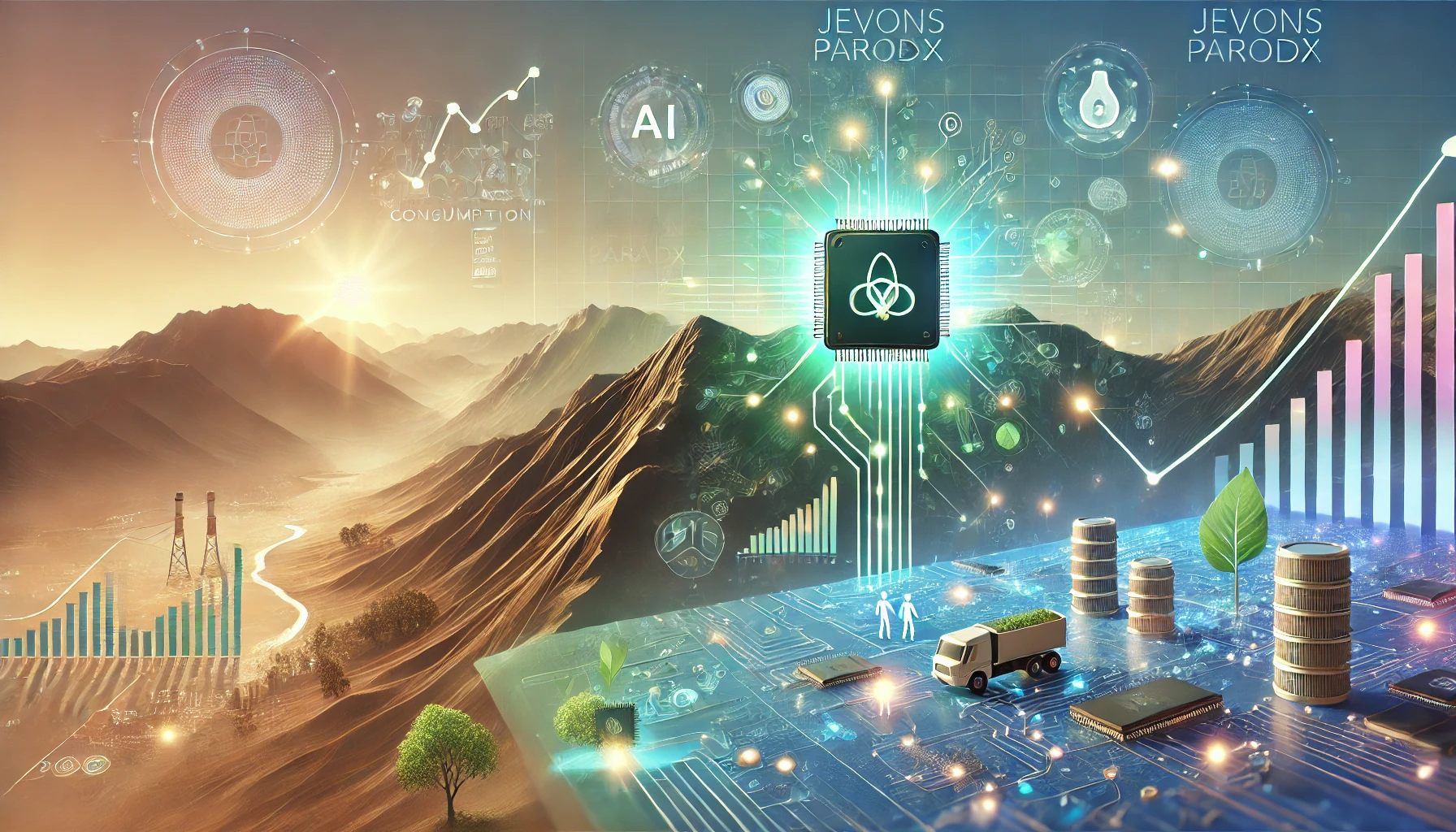You’ve probably heard the advice: “Switch to energy-saving bulbs! Buy fuel-efficient cars! It’ll save money and the planet!” But what if doing these things actually makes us use more resources? That’s the twist behind Jevons Paradox—a quirky economic idea that shows how good intentions can backfire.
On Friday, Tomasz Godziek, portfolio manager of the Tech Disruptors fund at J. Safra Sarasin Sustainable Asset Management, highlighted how lower AI costs could exemplify the Jevons Paradox. “Ultimately, this could fuel a new wave of AI investment, creating fresh opportunities, particularly in software and inference technologies,” Godziek said. Similarly, portfolio managers at Thematics Asset Management, an affiliate of Natixis IM, emphasized that the Jevons Paradox is one reason they believe demand for AI chips may remain robust. Let’s break it down in plain terms.
What Is Jevons Paradox?
Imagine you get a bike that’s super efficient—it takes less effort to pedal. You love it so much that you start biking everywhere, even to the corner store. Even though each trip uses less energy, you end up biking so much more that your total energy use goes up. That’s Jevons Paradox in action: improving efficiency leads to more consumption, not less.
This paradox was first spotted in 1865 by British economist William Stanley Jevons. He noticed that when steam engines became more efficient, coal use soared instead of dropping. Why? Because efficient engines made coal cheaper, so factories used them everywhere .
Real-Life Examples You’ll Relate To
- LED Lights: LED bulbs use way less electricity than old bulbs. But now we light up entire buildings, gardens, and holiday displays because “it’s efficient!” Total energy use? Still high .
- Fuel-Efficient Cars: Better mileage means cheaper drives. So people road-trip more or live farther from work. Gas savings? Wiped out by extra miles .
- Cloud Computing: Storing data digitally is efficient, but now we stream 4K videos 24/7. Energy-hungry data centers? Growing like weeds .
Why Does This Happen?
Two words: human behavior. When something becomes cheaper or easier to use, we tend to:
- Use it more (e.g., leaving lights on because “they’re efficient”).
- Find new ways to use it (e.g., factories adopting steam engines for tasks they never did before) .
Economists call this the rebound effect. If the rebound is big enough (like doubling energy use), it becomes Jevons Paradox .
Wait, Should We Stop Trying to Be Efficient?
No! Efficiency is still good—it lets us do more with less. The problem arises when we only focus on efficiency without tackling the bigger picture. For example:
- Efficient farming tools boosted food production but also led to over farming and water waste .
- Cheap air travel (thanks to fuel-efficient planes) made flying accessible, but global emissions rose .
How to Avoid the Trap
- Pair Efficiency With Smart Policies: Carbon taxes or energy caps can keep demand in check .
- Change Habits: Turn off those LEDs when not needed! Awareness campaigns can nudge people to consume wisely .
- Invest in Renewables: Solar and wind energy don’t run out, so even if we use more, the planet isn’t drained .
The Bottom Line
Jevons Paradox isn’t a doom prophecy—it’s a reminder that saving the planet needs more than just tech fixes. Efficiency + mindful policies + behavioral shifts = real progress. Next time you upgrade to an efficient gadget, ask: “Will I actually use less, or just use more?”
Small steps matter. But so does seeing the bigger picture. 🌍

